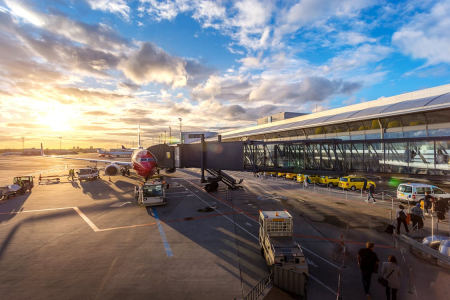You could finally get paid back for flight delays—here’s how
By
Maan
- Replies 0
Passengers across Australia could soon see big changes when flights are delayed or cancelled.
Air travellers have long faced confusion over refunds and rebookings.
Now, a new consumer protection scheme promises clarity—but what does it mean for your next trip?
The proposed Australia-first aviation consumer protection scheme came after criticism that Labor’s draft charter of aviation rights lacked clear rules on when refunds or compensation applied, and guidance for claim times or baggage issues.
Consumer advocacy group CHOICE highlighted a key flaw, questioning which regulator would enforce the charter.
Transport Minister Catherine King announced a four-week consultation period for the scheme on Monday, with the government aiming to pass legislation by the end of 2025.
The scheme promised minimum levels of assistance, information requirements at booking, and clear rules for when consumers could claim refunds or other compensation, with rollout expected from next year.
Ms King said the protection scheme would clarify obligations for airlines and airports.
‘We’ve heard the frustration Australian aviation passengers feel when dealing with airlines and airports,’ she said.
‘When things go wrong, it can be hard to know what passengers can expect from airlines and airports, because the approach is different at every airport and with each airline.’
‘This includes information requirements when you book a flight and check-in, how you should be communicated with and minimum levels of assistance when a flight is disrupted, and how airlines and airports should manage complaints.’
Similar consumer protection schemes operate in the US and European Union, where passengers are entitled to compensation of up to €600 (AU$1072) on flight delays of three hours or more, unless extraordinary circumstances such as natural disasters or civil unrest apply.
Passengers are also entitled to basic care including meals and accommodation for overnight delays.
A recent report by the Australian Competition and Consumer Commission found Qantas’ cancellation rate (3.2 per cent) was double that of its main competitor Virgin (1.6 per cent), while Qantas’ budget airline Jetstar had a cancellation rate of 1.1 per cent.
In October 2024, Qantas was fined up to $100m after it was found to have sold more than 82,000 tickets for ‘ghost flights’ the airline intended to cancel.
These sales occurred between May 2022 and May 2024 following the post-Covid travel boom.
The consumer watchdog also found Qantas had delayed notifying passengers of cancellations, taking an average of 11 days—and up to 67 days in some cases—to inform customers.
This was in addition to a $20m payment Qantas agreed to make to passengers who purchased tickets on flights it had already cancelled.
For passengers navigating flight delays and cancellations, knowing how airlines handle refund requests can be just as important as understanding new protections.
One recent case highlights the challenges travellers can face when unexpected circumstances disrupt their plans.
It’s a useful reminder of why clear guidelines and consumer protections matter in real-world situations.
Read more: Qantas faces backlash over handling of cancer-stricken passenger's refund request

Have you ever struggled to get compensation after a delayed or cancelled flight?
Air travellers have long faced confusion over refunds and rebookings.
Now, a new consumer protection scheme promises clarity—but what does it mean for your next trip?
The proposed Australia-first aviation consumer protection scheme came after criticism that Labor’s draft charter of aviation rights lacked clear rules on when refunds or compensation applied, and guidance for claim times or baggage issues.
Consumer advocacy group CHOICE highlighted a key flaw, questioning which regulator would enforce the charter.
Transport Minister Catherine King announced a four-week consultation period for the scheme on Monday, with the government aiming to pass legislation by the end of 2025.
The scheme promised minimum levels of assistance, information requirements at booking, and clear rules for when consumers could claim refunds or other compensation, with rollout expected from next year.
Ms King said the protection scheme would clarify obligations for airlines and airports.
‘We’ve heard the frustration Australian aviation passengers feel when dealing with airlines and airports,’ she said.
‘When things go wrong, it can be hard to know what passengers can expect from airlines and airports, because the approach is different at every airport and with each airline.’
‘This includes information requirements when you book a flight and check-in, how you should be communicated with and minimum levels of assistance when a flight is disrupted, and how airlines and airports should manage complaints.’
Similar consumer protection schemes operate in the US and European Union, where passengers are entitled to compensation of up to €600 (AU$1072) on flight delays of three hours or more, unless extraordinary circumstances such as natural disasters or civil unrest apply.
Passengers are also entitled to basic care including meals and accommodation for overnight delays.
A recent report by the Australian Competition and Consumer Commission found Qantas’ cancellation rate (3.2 per cent) was double that of its main competitor Virgin (1.6 per cent), while Qantas’ budget airline Jetstar had a cancellation rate of 1.1 per cent.
In October 2024, Qantas was fined up to $100m after it was found to have sold more than 82,000 tickets for ‘ghost flights’ the airline intended to cancel.
These sales occurred between May 2022 and May 2024 following the post-Covid travel boom.
The consumer watchdog also found Qantas had delayed notifying passengers of cancellations, taking an average of 11 days—and up to 67 days in some cases—to inform customers.
This was in addition to a $20m payment Qantas agreed to make to passengers who purchased tickets on flights it had already cancelled.
For passengers navigating flight delays and cancellations, knowing how airlines handle refund requests can be just as important as understanding new protections.
One recent case highlights the challenges travellers can face when unexpected circumstances disrupt their plans.
It’s a useful reminder of why clear guidelines and consumer protections matter in real-world situations.
Read more: Qantas faces backlash over handling of cancer-stricken passenger's refund request
Key Takeaways
- A new Australian aviation consumer protection scheme aims to provide refunds and compensation for delayed or cancelled flights.
- Transport Minister Catherine King announced a consultation period with legislation expected by the end of 2025.
- Qantas’ past cancellation practices and ‘ghost flights’ prompted the need for clearer regulations.
- International comparisons show passengers are entitled to compensation and basic care under similar schemes in the US and EU.
Have you ever struggled to get compensation after a delayed or cancelled flight?








